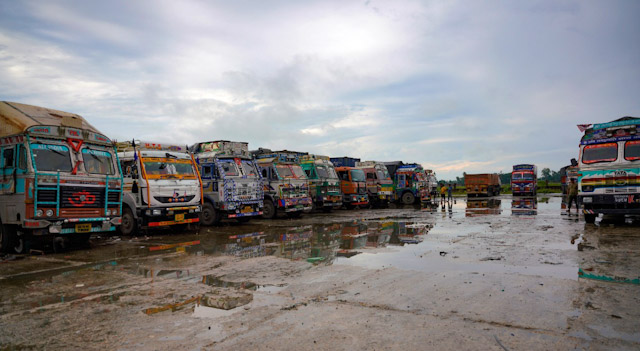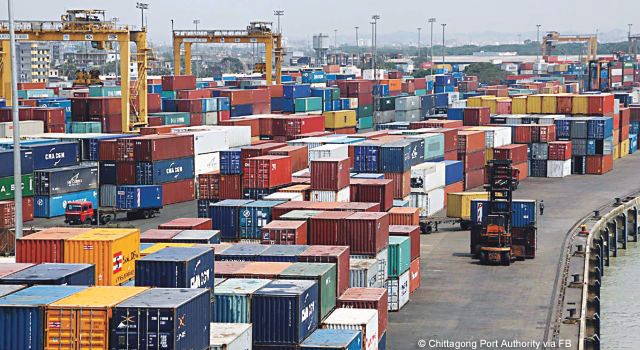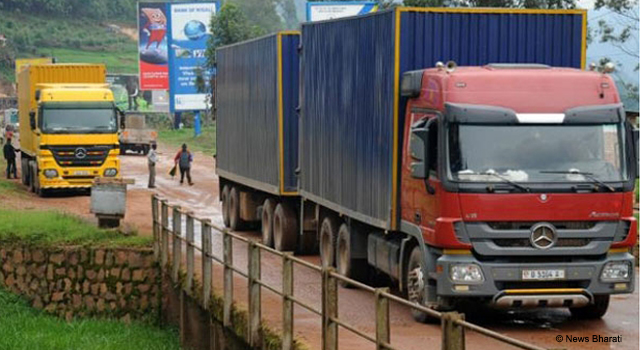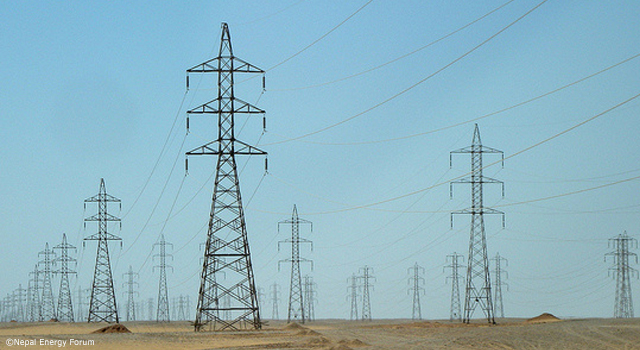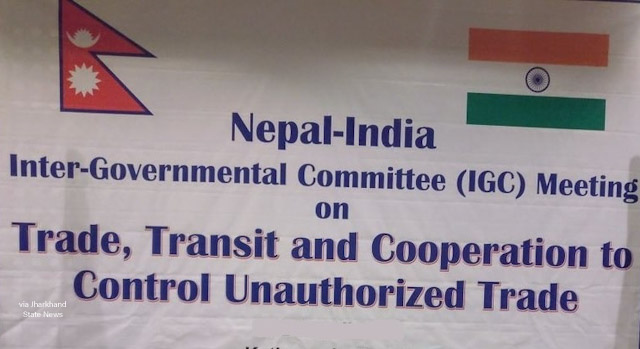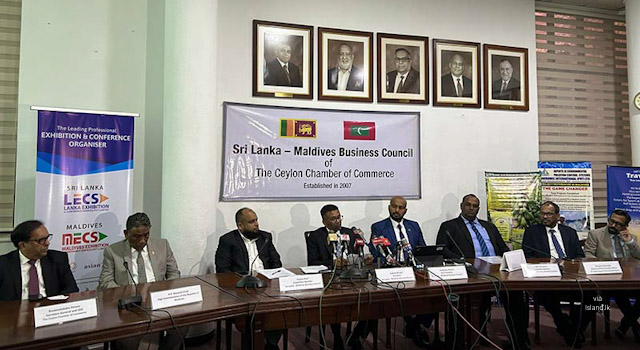
Commentary: Nepal Hydropower to Bring Economic, Social, and Environmental Benefits
15 December 2016

Nepal’s hydropower potential could be realized with an efficient technological base, entrepreneurial vision, a coordinated power trading approach, and sustained investment commitment. Hydropower development would bring economic, social, and environmental benefits in Nepal and the rest of the South Asian region, according to Prime Minister Pushpa Kamal Dahal of Nepal.
In this speech delivered at the Power Summit 2016 organized by the Independent Power Producers’ Association, Nepal, on 15 December 2016 in Kathmandu, Nepal Prime Minister vowed to support domestic and foreign investors through a policy encouraging investment and facilitating the implementation of hydropower projects.
Address at Power Summit 2016: 10,000 MW in 10 Years
By Nepal Prime Minister Pushpa Kamal Dahal
Chair of this program Mr. Khadga Bisht, president of IPPAN, honourable Minister for Energy Mr. Janardan Sharma, members of IPPAN, distinguished guests and power producers, ambassadors and representatives of the diplomatic community, ladies and gentlemen,
Let me first of all express my thanks and appreciation to the Independent Power Producers’ Association, Nepal (IPPAN) for taking the initiative in organising Power Summit 2016 under the theme of 10,000 megawatts (MW) in 10 Years. I am pleased to be here with you all.
We always take pride that Nepal is one of the richest countries in the world in terms of water resources. However, we are currently generating a negligible amount of hydropower that is less than 2% of technically feasible capacity
This suggests that we have vast opportunity in the power development sector that we need to utilize. As we all are aware, power is critical to fuel development. Access to energy and its affordability can greatly enhance quality of life and help people use their resources productively to generate employment and income.
Currently, we are suffering from power shortage and interruption. There is a gap between demand and supply of electricity and that has a bearing in the slow pace of economic development. We need to alter this situation.
Excellencies, ladies and gentlemen, safe and sustainable energy for all is one of the key goals of the 2030 Agenda for Sustainable Development that the international community envisioned last year. Quality, quantity, safety and affordability are important considerations for the power consumers.
The importance of renewable energy has great bearing on accelerating Sustainable Development, addressing the problem of climate change and ensuring energy security.
The huge hydropower development potentials available in Nepal can be harnessed with efficient technological base, entrepreneurial vision, coordinated power trading approach and sustained investment commitment.
Investment in hydropower development would bring a number of economic, social and environmental benefits at home and in the neighbourhood. This in mind, the Government of Nepal has accorded high priority in investing in medium and large scale hydropower projects while encouraging the private investors to join hand in this endeavour.
Independent Power Producers can make important contribution to our development efforts by encouraging local participation in hydropower and creating increased demand for electricity supply.
With sound cash flow coming from the remittance and transfers, there is a good potential for the people to participate in viable medium size hydropower projects. I am confident that independent power producers are prepared to seize this opportunity available within and also to attract foreign investment in the hydropower sector.
Ladies and gentlemen, the Constitution of Nepal promulgated last year enshrines the policy towards ensuring reliable supply of energy in an affordable and easy manner, and making proper use of energy for the fulfilment of the basic needs of citizens, by generating and developing renewable energy.
As you have highlighted in this Power Summit, the Government has announced National Energy Crisis Reduction and Development Decade 2016-2026, with the projection that there will be a demand of 10,000 MW electricity after 10 years.
The Government of Nepal has laid the policy of encouraging private sector in production and distribution of hydropower.
We are promoting multipurpose power projects with the view of bringing in technical expertise, attracting investment, creating job opportunities, and emphasizing energy security which would also reinforce environment friendly development approach.
Groundwork on boosting energy sector is prepared. Nepal and India have signed power trade agreement and committed to take measures to operationalize the agreement. Government has taken initiative to engage diplomatically with the Government of India with a view to removing constraints arising from recently issued power purchase guidelines in India. I am optimistic that this issue will be addressed taking into account of the long term investment potentials in power sector in this region and for the mutual benefit.
As you are aware that the Government of Nepal has accorded high priority to the timely completion of the designated projects of national pride that includes some of the key hydropower projects, such as Upper Tamakoshi and Chamaliya.
We have accelerated monitoring of those projects, removing impediments in the implementation process, and pronounced scheme of reward and incentives for those involved in the implementation, should the project comes into completion before the targeted deadline.
As you might have observed, I myself have visited the sites of some of the key power generation and transmission-line projects in recent weeks to encourage speedy implementation and help remove the obstacles.
Timely completion of transmission lines and hydropower generating projects is important for smooth distribution of power and avoiding load-shedding. Because, in the midst of energy crisis, life of the people is severely affected and the growth of the economy will be suddenly constrained.
The Government’s efforts to minimize pilferage and loss of electricity as well as improvement in the distribution system have started paying off by way of reduced hours of load shedding experienced lately.
We have emphasised the expeditious implementation of major power development projects, specifically Pancheswar, Upper Karnali, and Arun III. We should tap on the opportunity of promoting bilateral, regional and global cooperation in the power development and power trading.
The relevant Government authorities, particularly the Ministry of Energy and the Investment Board of Nepal, are actively pursuing national efforts for power sector development. Private sector is the key partner in joint common effort of achieving the goal of 10,000 MW in 10 years.
I am encouraged that our efforts of rural electrification as well as reduction of energy crisis could be materialised with the enthusiastic participation of Independent Power Developers.
It is indeed a matter of satisfaction that Nepal’s development partners, including development banks and financial institutions are attracted and interested to invest in the development of hydropower sector.
Private sector has the inherent strength and expertise to spread mutual benefits among the consumers, producers, and distributors. I hope that such a gathering would come up with concrete ideas and implementation modalities to shape up the course of action for enhanced partnership.
The Government of Nepal is committed to support both the domestic private sector and foreign investors both through policy of encouraging investment and facilitating the implementation of projects. I am happy to state that the joint commitment signed by major political parties some three years ago to supporting hydropower development remains valid and the Government is committed to that.
Distinguished guests and participants, the present Government of Nepal has been focusing on cohesive political approach in institutionalising inclusive and democratic governance through dialogues, accommodation and forward looking progressive outlook.
We understand that peace and stability play vital role in fostering economic and development activities. That includes acceleration of the hydropower development projects, too.
Rebuilding of Nepal requires the vigour that the people of Nepal have always demonstrated with robust and constructive spirit. I call upon you all to join hands.
I congratulate the organisers for organising this useful forum for the exchange of ideas and learning lessons. I wish the program all success. Thank you very much.



